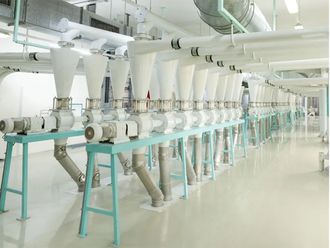Shares in India posted their first weekly gain in three after economic data indicated growth was picking up, reviving optimism about the outlook for Asia’s third-largest economy that had unexpectedly slowed sharply in the June quarter. Corporate earnings will be watched for direction in the coming week.
Robust sales of automobiles and a rebound in manufacturing and services activity provided a whiff of fresh air, as output grew to meet the country’s biggest festival season. Consumer demand in most regions peaks ahead of Diwali, the festival of lights, when most companies pay annual bonuses to their staff. The festival falls just past mid-October.
Significantly, strong demand for commercial vehicles, particularly heavy trucks, suggested the broader economy was shaking off the lingering effects of last November’s demonetisation — which caused a severe cash crunch as 86 per cent of the currency in circulation was invalidated — and teething problems with the July launch of a national sales tax.
Acknowledging the nagging problems with the Goods and Services Tax (GST), New Delhi on Friday cut tax rates on 27 items and relaxed the time for small businesses to file returns to ease the pain of transition to the new system.
Investor focus will be on quarterly earnings, which will be kicked off on Thursday by Tata Consultancy Services, India’s leading software services exporter. IndusInd Bank, controlled by billionaire Hinduja brothers, also announces its earnings on the same day.
Energy conglomerate Reliance Industries Ltd, run by India’s richest man, Mukesh Ambani, releases its July-September numbers on Friday. Besides its traditional refining and petrochemicals businesses, the company is also expected to gain from its Jio mobile services, which had about 125 million subscribers by end-June.
Avenue Supermarts Ltd, owners of the D’Mart retail chain and which had a roaring stock market debut this year, also unveils its results on Friday.
Growth revives
Besides automobiles and consumer durables, further evidence of a turnaround was available when Tata Steel said its September quarter sales grew 12.4 per cent to 2.62 million tonnes. Shares in Tata Steel rallied 6.2 per cent over the week.
“The sales data came as a welcome boost to market sentiment,” said equity salesman Mahesh Dalal. “It doused the pessimism that seemed to be taking roots.”
Economic growth had slowed sharply to 5.7 per cent in the June quarter, the weakest in more than three years, and the government came under attack from opposition leaders as well as from within the ruling Bharatiya Janata Party.
Market pundits believe the slowdown is a temporary setback and the reforms, particularly the GST, would give a boost to the economy. Infrastructure output in August expanded at its fastest pace in five months, powered by higher coal and electricity production, government data showed.
The output grew 4.9 per cent, accelerating from a revised 2.6 per cent year-on-year expansion in July, for the eight sectors made up of coal, crude oil, natural gas, refinery products, electricity, steel, cement and fertiliser. These account for about 40 per cent weight in index of industrial production.
Truck, car sales
Tata Motors, the country’s leading maker of trucks, said its vehicle sales, including cars, in September were the highest in 4-1/2 years, climbing by a fourth to 53,965 units. Commercial vehicle sales jumped 29 per cent to 36,679 and contributed to 68 per cent of total sales. Medium and heavy truck sales grew 25 per cent as operators expanded their fleet in the wake of a clampdown on overloading.
Rival Ashok Leyland, controlled by the Hinduja Group, said its sales of medium and heavy trucks raced 32 per cent, while demand for light commercial vehicles rose 28 per cent, with total sales rising for a fourth consecutive month.
Mahindra & Mahindra, the largest maker of tractors, said its farm equipment domestic sales in September shot up 52 per cent to 44,000 units, while exports nudged up two per cent to 1,563.
Sales at Maruti Suzuki, which makes every second new car sold in India, grew 9.6 per cent to 150,521, while second-placed Hyundai Motor’s rose 17.4 per cent to 50,028. Passenger vehicle sales at Tata Motors and Mahindra & Mahindra climbed 18 and 23 per cent respectively.
As people buy cars when they have extra money in the kitty, the strong demand suggests incomes and aspirations are rising. Truck buyers must also feel confident to take on the risk of adding to their fleet because nearly all purchases of commercial vehicles are financed by loans. In other words, the higher vehicle sales are a good indicator of latent demand in the economy.
Demand for motorcycles and scooters was also strong, with market leader Hero MotoCorp posting a record 720,739 units sales, while Bajaj Auto said its sales hit an 18-month high and TVS Motor’s grew 23 per cent.
Factories brimming
Rebounding from a contraction in July, manufacturing activity expanded for a second consecutive month in September, and companies began hiring more, a private survey showed.
The Nikkei/Markit Manufacturing Purchasing Managers’ Index, compiled by IHS Markit, was steady at 51.2 in September, but clear of 50 that marks contraction and expansion.
“September data painted an encouraging picture as the sector continued to recover from the disruptions caused by the introduction of the GST in July,” said Aashna Dodhia, an economist at IHS Markit and author of the report.
“This sustained amelioration reflected expansions in new work and output, supported by stronger domestic demand conditions. Subsequently, business confidence strengthened among manufacturers as they reportedly anticipate long-term benefits from recent government policies.”
The rate of employment growth quickened to the fastest since October 2012. Staffing levels have risen in three of the past four months. Still, output and new business growth remained weak in the context of historical survey data.
Potential eyed
For investors, the expanding manufacturing activity is a good sign of better tidings for the corporate sector.
The top-30 Sensex snapped a two-week losing streak and rebounded 1.7 per cent over the four trading days to Friday and closed at 31,814.22. The 50-share Nifty rose 1.95 per cent to 9,979.70.
Morgan Stanley has forecast the Sensex could reach as high as 130,000 in 10 years, betting the $2.2 trillion economy would climb to $6 trillion by then. On a base case, it predicted the benchmark index to hit 100,000 by 2027, or tripling from current level.
Minerals-rich Australia is keeping a close watch on the rapid changes happening in India, which they believe would provide a big market for their resources.
“Like China since the start of this century, India is in the midst of a huge wave of urbanisation, the scale of which has few parallels in history,” Canberra-based Department of Industry, Innovation and Science said in a quarterly report on Friday.
It expects India’s urban population could grow to 642 million by 2035 from about 439 million in 2016, expanding by 10 million a year.
“As a highly populous and rapidly developing middle-income country, India’s consumption of metals is likely to increase considerably,” the report said.
GIC Re IPO
State-owned General Insurance Corp of India, or GIC Re, is set to launch on Wednesday its initial public offering, aiming to raise as much as Rs113.7 billion, making it the biggest share sale since 2010 when government-controlled Coal India raised Rs152 billion.
GIC Re, the country’s largest reinsurer, has set a price range of Rs855-912 for the offering, valuing the company at Rs800 billion at the upper end. New Delhi will sell 107.5 million shares, while the company is offering 17.2 million new shares. The total sale of 124.7 million shares constitutes 14.2 per cent of the post-offer paid up share capital. The offering closes on Friday.
Other insurance companies are also queuing up share sales, attracted by the robust appetite for IPOs. State-run New India Assurance Company and private-sector Reliance Nippon Life Asset Management and HDFC Standard Life Insurance Company are among many, including non-insurance, companies planning to raise Rs350 billion in the coming months.
Meanwhile, SBI Life Insurance Company Ltd, which raised $1.3 billion in its IPO, rose as much as 5.7 per cent on market debut only to fall back and closed the first week of trading at Rs694.90, below the issue price of Rs700.
— The writer is a journalist based in India












